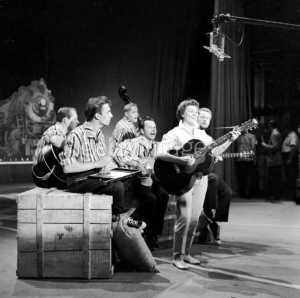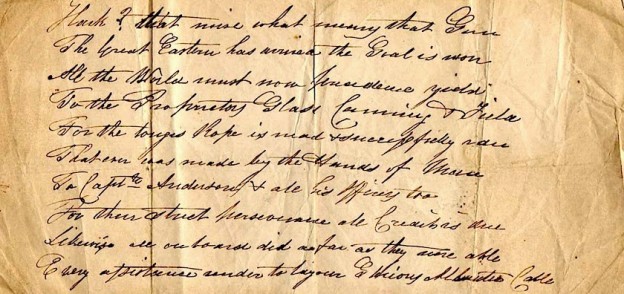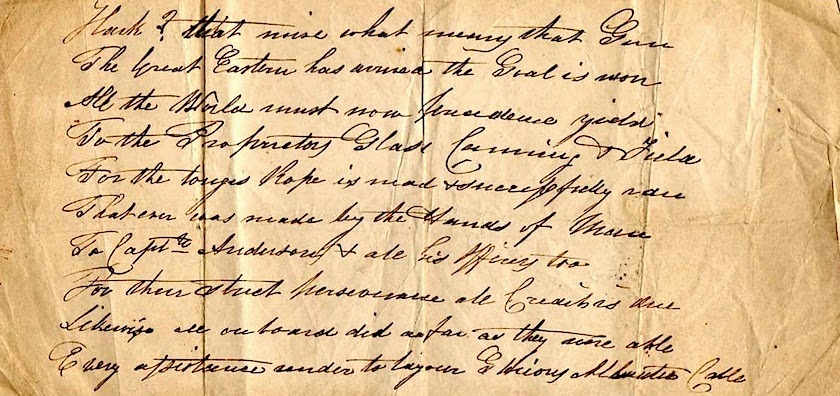This scrap of doggerel, found among a collection of holograph letters, has no name attached. It is bad enough to be by William McGonagall, the second worst poet who ever lived (the first being Amanda Ros), but is dated at around 1866, which must surely be too early for him.
Hark ? that noise, what meaning that Gun
The Great Eastern has arrived, the Goal is won
All the world must now precedence yield
To the Proprietors Glass, Canning and Field
For the (longest) Rope is made & successfully ran
That ever was made by the Hands of Man
To Capt. Anderson & all his officers too
For their strict perseverance all Credit is due
Likewise, all on board did as far as they were able
Every assistance render to lay our Glorious Atlantic Cable.
The first transatlantic telegraph cable manufactured by Glass and associates was laid in 1858 from Western Ireland to Heart’s Content, Newfoundland, with Cyrus Field as entrepreneur. Unfortunately, the poor quality of the cable meant that it functioned well for only a few weeks and was irretrievably damaged in September of the same year when too much current was passed through it. Undaunted, Field and associates raised more money and in 1865 Brunel’s huge ‘Great Eastern’ steamship, was commissioned to lay a new improved cable along the same route. Under Captain James Anderson and with Canning as chief engineer, the ship sailed westwards from Ireland, but after 1,062 miles the end of the cable was accidentally dropped into the sea, where it sank to the depth of over two miles. The mission was abandoned and the Great Eastern sailed back to obtain a new cable. This was duly laid in July 1866, to universal acclamation .The poem seems to celebrate this astonishing feat of seamanship and engineering, but it may have been composed a few months after this initial success, when thanks to the 'strict perseverance' of Anderson and his officers the lost first cable was somehow retrieved from the depths of the Atlantic, spliced to a new cable, and the whole laid along the same route to Newfoundland. Thus, by September 1866 two working transatlantic cables were in operation.
The new communications link to America was an astounding boon to commerce, diplomacy and the military—reducing the time taken to send and receive messages from ten days to a few minutes. [R R]




